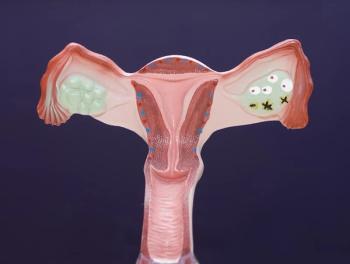
Miami Breast Cancer Conference® Abstracts Supplement
- 38th Annual Miami Breast Cancer Conference® - Abstracts
- Volume 35
- Issue suppl 1
7 Evaluation of the 21-Gene Recurrence Score (RS) Assay Results Following Successful Intraoperative Radiation Therapy (IORT) Treatment of Patients With Early-Stage Breast Cancer
Barbara Schwartzberg, MD1; Kathryn Howell, MD2; Joyce Moore, MD1; Devchand Paul, DO, PhD3
1Western Surgical Care, Lone Tree, CO
2Rocky Mountain Cancer Centers, Littleton, CO
3Rocky Mountain Cancer Centers, Denver, CO
Background
An institutional review board–approved, single-institution clinical trial was designed to determine the efficacy and outcome of intraoperative radiation therapy (IORT) as monotherapy. The correlation between post-IORT recurrence and recurrence score (RS), which was used to guide recommendations for adjuvant medical therapy for trial patients with estrogen receptor–positive (ER+) disease, was evaluated.
Methods
The outcomes of patients completing both monotherapy IORT per protocol using disposable balloon technology and RS assessment were reviewed. Data collection included demographics, histopathology, prognostic factors, RS, adjuvant therapy, local recurrence (LR), and survival.
Results
From November 2011 to January 2016, 115 patients (aged 43-84 years; mean 63 years) completed both monotherapy IORT per protocol and RS assessment. All patients had ER+ invasive carcinomas (0.2-2.4 cm; mean size, 1.1 cm), and were chemotherapy candidates. Invasive ductal carcinoma was diagnosed in 110 patients (96%) and invasive lobular carcinoma in 5 (4%). Low RS (< 11) was observed in 25 patients (22%); RS of 11 to 15 in 20 (17%); RS of 16 to 25 in 53 (46%); RS of 26 to 30 in 9 (8%); and RS of 30 or greater in 8 (7%). At a median follow-up of 6.8 years, there were 3 instances of LR (RS of 0, 17, and 18) and 1 axillary recurrence (RS of 19). There have been no breast cancer–related deaths. Twenty-three patients (20%) received chemotherapy, including 12 (71%) in the high RS (RS > 25) groups. Chemotherapy was not administered to any patient with a RS less than 18. One patient with LR (RS 0, aged 65 years, 1.5 cm, Scarff-Bloom-Richardson [SBR] Grade [Gr] 3) declined endocrine therapy. Ten patients (19%) with RS of 16 to 25 received chemotherapy. One patient with LR (RS 17, aged 64 years, 1.5 cm, SBR Gr 3) and 1 with axillary recurrence (RS 19, aged 66 years, 1.3 cm, SBR Gr 3), neither of whom received chemotherapy, were compliant with endocrine therapy. One patient with LR (RS 18, aged 51 years, 0.6 cm, SBR Gr 3) was treated with cyclophosphamide and docetaxel. She later tested positive for a CHEK2 mutation. Seven patients (78%) with RS of 26 to 30, and 5 (63%) patients with an RS of 30 or more received chemotherapy. There were no recurrences in these 2 groups. Two patients with LR opted for lumpectomy and excision of the area treated with IORT, followed by whole-breast radiation therapy. One patient with LR and another with axillary recurrence chose mastectomy.
Conclusions
Patients (N = 115) treated with monotherapy IORT per protocol using disposable balloon technology and RS assessment at a single institution were found to have a 3.5% recurrence rate at a mean follow-up of 6.8 years. High RS results (RS > 25), which guided chemotherapy recommendations in appropriate use of IORT in patients, did not correlate with recurrence.
Articles in this issue
Newsletter
Stay up to date on recent advances in the multidisciplinary approach to cancer.




































